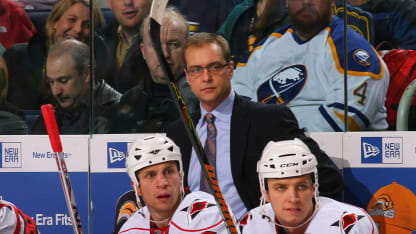Panthers coach Maurice played key role in making Hurricanes grow
First coach in Carolina history to face former team in Eastern Conference Final

© Bill Wippert/Getty Images
First coach in Carolina history to face former team in Eastern Conference Final

© Bill Wippert/Getty Images